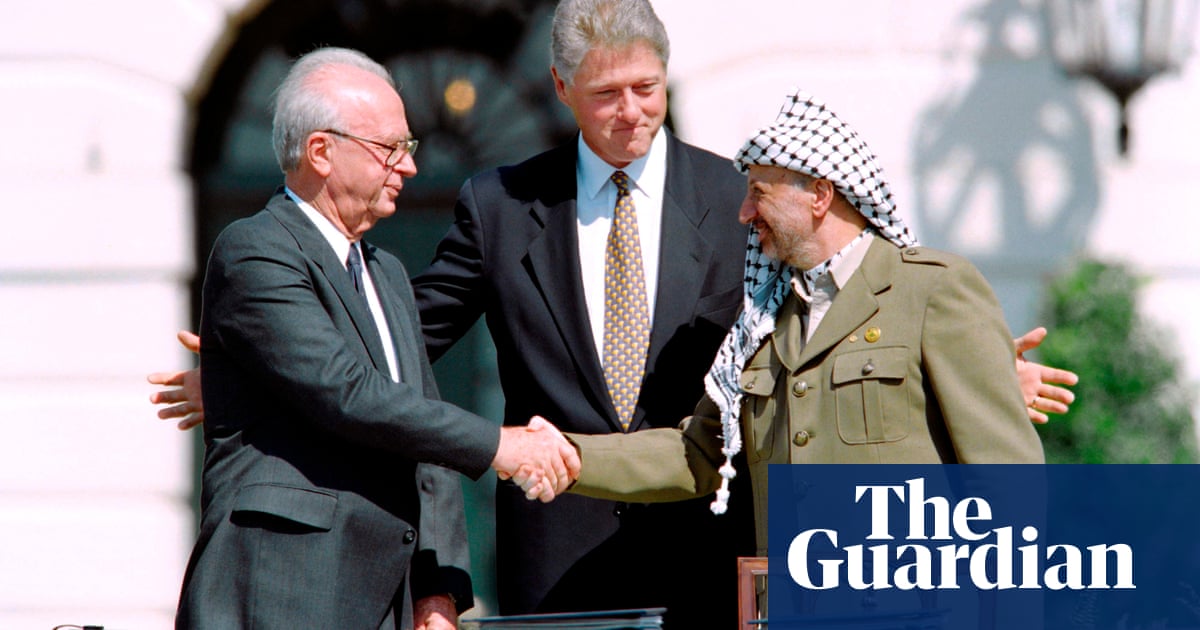
Official support for a two-state solution has been the cornerstone of US diplomatic engagement in the Middle East since the 1990s and the beginning of the so-called peace process. Nevertheless, since Oct. 7, 2023, American political influence on Israel has been limited.
There is an apparent contradiction between the US support of the Israeli government’s military operation in Gaza, on the one hand, and the official policy of supporting a two-state solution on the other. In other words, how can one justify US political support to an Israeli government that opposes a two-state solution? This political contradiction is also apparent in the policies of other states, such as the UK, France, Australia, Canada and Egypt. While Israeli Prime Minister Benjamin Netanyahu has always been an opponent of a two-state solution, he is still able to receive support from many countries that officially back this political solution to the Palestinian question.
The Israeli prime minister’s display of strength to impose his own political agenda on his Western allies can be best explained by the limited objective of US and European policies toward the Middle East conflict. The first dimension of Netanyahu’s strategy is to take advantage of Washington’s objective of pursuing an Israeli-Arab normalization process without pursuing an agenda of a just peace to end the suffering of the Palestinian people.
The second dimension is to use the US objective not to be involved in any Middle Eastern conflict and to pivot to Asia. This US policy outlook dates back to the emergence of the Obama administration in 2009. As President Joe Biden explained in his State of the Union address last month, “no US boots will be on the ground” to support Israeli war efforts in Gaza.
The US’ priority is the short-term management of the humanitarian consequences of the Israeli military intervention
Dr. Mohammed Al-Sulami
The focus of US-Israeli discussions has switched from a political solution to the Palestinian issue to the management of the military escalation in the context of the war in Gaza. Biden mentioned this imperative in his State of the Union address, saying: “Israel must allow more aid into Gaza and ensure that humanitarian workers aren’t caught in the crossfire.” In other words, today, the US’ priority is no longer a comprehensive political solution to the Palestinian issue, but rather the short-term management of the humanitarian consequences of the Israeli military intervention. America’s objectives in Gaza have been defined by a prioritization of the release of all hostages taken by Hamas on Oct. 7.
The humanitarian catastrophe can only be addressed if the root cause of the conflict is discussed. For now, humanitarian assistance to civilians in Gaza has become a bargaining chip to release hostages. The inability of the US to prioritize the end of famine, the risk of spreading diseases and the end of death and destruction in Gaza is first and foremost the result of a securitization of the US diplomatic approach toward the Palestinian issue. The securitization of the US approach is still the main driver of Biden’s policy.
In this context, US Secretary of State Antony Blinken’s announcement that the State Department will conduct a review and present policy options on possible US and international recognition of a Palestinian state after the war in Gaza will have limited effect. Indeed, there is no US political path to solving the Palestinian issue. Since the 1980s, US policy has constantly been to oppose the recognition of a Palestinian state both bilaterally and in UN institutions. On the contrary, it has always underlined that Palestinian statehood can only be realized through direct negotiations between Israel and the Palestinian Authority.
The political proximity between Washington and Tel Aviv has always been a policy question for the Palestinian leadership
Dr. Mohammed Al-Sulami
This diplomatic approach of promoting direct negotiations between Israel and the PA failed at the beginning of the 2000s with the end of the peace process. Many factors explain this failure, such as the refusal of Israel to consider the existence of a Palestinian partner and the weakening of US diplomatic credibility because of an unbalanced policy between the two camps. Indeed, the political proximity between Washington and Tel Aviv has always been a policy question for the Palestinian leadership, which has struggled to see the US as an honest broker in the negotiation process.
Today, the Biden administration is still facing the legacy of the failure of the two-state solution. To overcome this US deficit of credibility, the Biden administration is trying to link a possible normalization process between Israel and Saudi Arabia to the creation of a pathway for the establishment of a Palestinian state as part of its postwar strategy. Despite this US diplomatic maneuver, a two-state solution is now further away than it has ever been, with some even proclaiming it “dead.”
Beyond the US’ difficulty in recognizing the existence of a Palestinian state, 139 members of the UN have done so, even if the governing bodies in the West Bank and Gaza (the PA and Hamas, respectively) do not have control over their own security or borders.
The US president could recognize a Palestinian state with immediate legal effect. To do so, he would not need permission from the US Congress or Israel, even though Israeli troops remain in control of most Palestinian territory. Netanyahu is against US calls for a path to a Palestinian state. The official justification of the Israeli refusal to compromise on the question of Palestinian statehood is the result of decades of securitization of this question.
Netanyahu in January explained that he would not “compromise on full Israeli security control over all territory west of the Jordan River.” This Israeli security strategy will probably prevent the US from presenting a credible diplomatic framework to advance military de-escalation in Gaza. Only a rebalancing of US policy between Arab and Israeli interests could pave the way for the end of the Gaza war and the relief of the suffering of the Palestinian people.
Dr. Mohammed Al-Sulami is the founder and president of the International Institute for Iranian Studies (Rasanah). X: @mohalsulami










